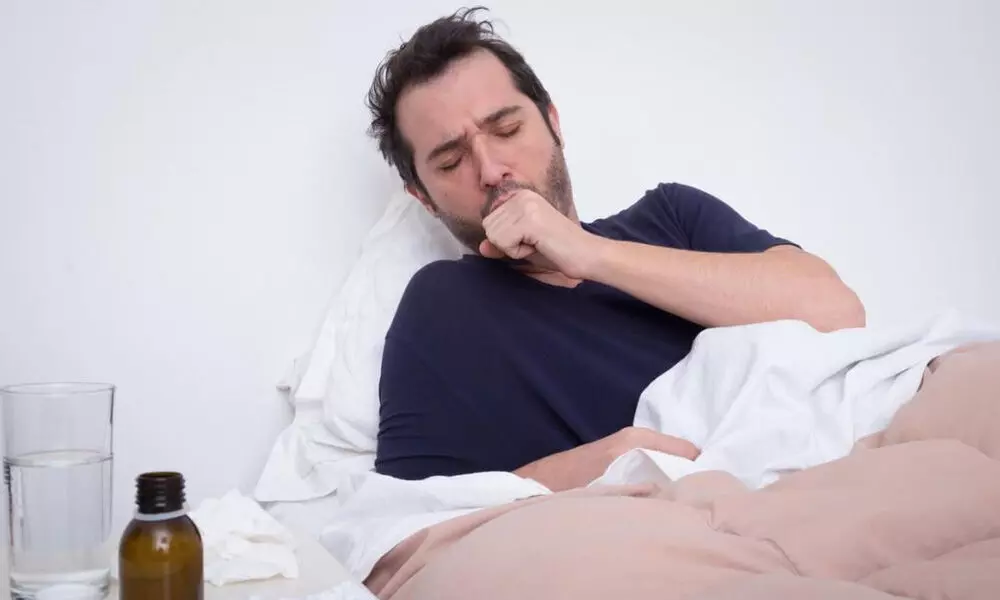Learn about most deadly communicable disease

Learn about most deadly communicable disease
World pneumonia day was established by the Stop Pneumonia Initiative in 2009 to raise awareness and advocate for global action
World pneumonia day was established by the Stop Pneumonia Initiative in 2009 to raise awareness and advocate for global action. It's observed on 12th November every year. As per World health organisation (WHO), Lower respiratory infections remained the world's most deadly communicable disease, ranked as the 4th leading cause of death. Pneumonia is the single largest infectious cause of death in children worldwide.
Air pollution is the leading risk factor for death from pneumonia across all age groups. Indoor air pollution is predominantly caused by biomass fuel smoke exposure such of burning of wood, coal, cow dung, crop residue at home for cooking food, heating water especially in villages. Women and children are at high risk of exposure to indoor pollutants. Outdoor air pollution caused by automobile smoke exhaust, industrial emission, burning of crop residue etc. Smoke when get mixed with fog, it forms smog. Smog exposure is common in winter especially in metro cities. Smog is harmful for respiratory tract mucosa, which leads to respiratory tract infection and pneumonia. Elderly people and children are at high risk of getting pneumonia.
Smoking (both active and passive) is important risk factor for pneumonia. Parental smoking can cause frequent pneumonia in children. Living in crowded homes can cause Pneumonia. Failure to take or complete required immunization for children may also put them at risk of Pneumonia. Pre-existing illnesses, such as symptomatic HIV infections and measles, also increase risk of contracting pneumonia.
What is Pneumonia
Most Lung consists of air sacs. Infection that inflames air sacs in one or both lungs, which may fill with fluid, is called as pneumonia. It affects oxygen absorbing capacity of lungs. Severe pneumonia can lead to respiratory failure.
Pneumonia is caused by a number of infectious agents, including viruses, bacteria and fungi. Pneumonia is a deadly disease, especially for children in developing countries. Corona virus (such as COVID 19 disease virus) can also cause pneumonia.
Common pathogens causing pneumonia
Streptococcus pneumoniae – the most common cause of bacterial pneumonia in children. Haemophilus influenzae type b (Hib) – the second most common cause of bacterial pneumonia. Respiratory syncytial virus is the most common viral cause of pneumonia. In infants infected with HIV, Pneumocystis jiroveci is one of the most common causes of pneumonia, responsible for at least one quarter of all pneumonia deaths in HIV-infected infants.
Symptoms and diagnosis of Pneumonia
Cough (dry or associated with phlegm), fever, chest pain, breathing difficulty, weakness, occasionally blood in sputum etc symptoms are present in pneumonia. Doctor can detect pneumonia in patient by clinical examination, chest X ray, blood and sputum tests. Few patients may require CT scan of the chest.
Very severely ill infants may be unable to feed or drink and may also experience unconsciousness, hypothermia and convulsions.
How pneumonia can spread
Pneumonia can be spread in a number of ways. The viruses and bacteria that are commonly found in patient's nose or throat can infect other persons if they are inhaled. Pneumonia causing pathogens spread via air-borne droplets from a cough or sneeze.
How to treat pneumonia
Pneumonia should be treated with medications (including antibiotics) as per doctors advise. Your healthcare provider will recommend appropriate drugs for the treatment. Patients with milder symptoms can be treated with oral medications at home. Some patients such as elderly, children, patients with breathing difficulty or less oxygen levels in body or co-morbidities require hospitalisation. Few patients may require assisted ventilation. Pneumonia can be life-threatening to anyone, but particularly to infants, children and people over 65.
How to prevent pneumonia
Adequate nutrition is key to improving natural defences. Encouraging good hygiene, cough etiquette, smoking cessation, addressing environmental factors such as air pollution, vaccinations against flu & pneumonia reduces risk of getting pneumonia. We should not go to workplace and should not send children to school if symptoms of pneumonia present. Pneumonia prevention is essential to reduce morbidity and mortality especially in children and elderly people.
(Dr Chandrakant Tarke, Consultant Pulmonologist, Apollo Hospitals, Hyderabad)

